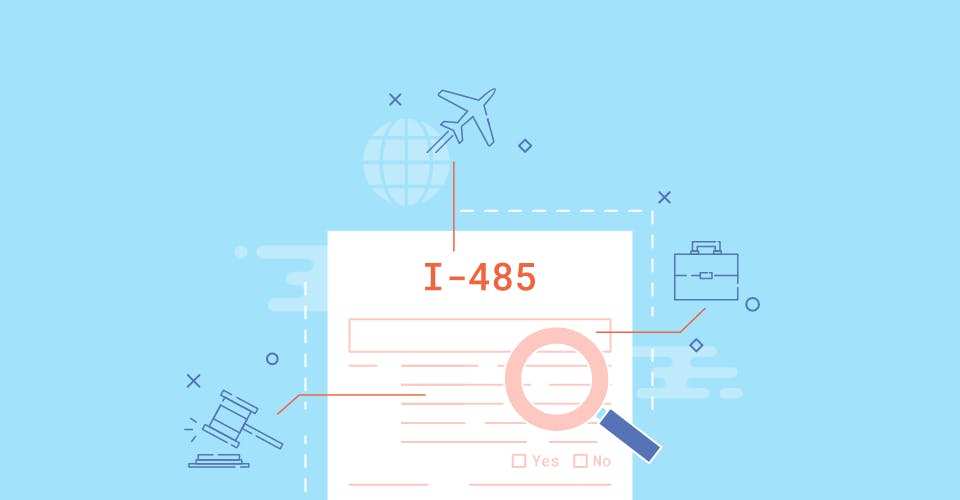The green card process in the United States demands that immigrants must be on a lawful visa while residing in the country if they are to be eligible for filing an I-485 application. Any non-citizen, according to the USCIS and by extension, the Department of Homeland Security will be “barred from adjustment of status if the alien is in an unlawful immigration status on the date of filing the adjustment application.”
This is important for the purpose of understanding immigration better, and to know that the system is not simply trying to keep away immigrants from the country, but rather than a prescribed set of rules in place act as a safeguard against unlawful entries and also invalid I-485 applications. Additionally, there are exceptions to the above rule of barring immigrants with certain circumstances. These individuals include:
1. Violence Against Women Act (VAWA) based applicants.
2. Certain alien doctors and their accompanying spouses and children.
3. Special Immigrant Juveniles—those who have been declared dependent on a juvenile court located in the United States, or whom such a court has legally committed to, or placed under the custody of, an agency or department of a State, or an individual or entity appointed by a state or juvenile court located in the United States, and whose reunification with one or both of the immigrant's parents is not viable due to abuse, neglect, abandonment, or a similar basis.
4. Certain G-4 International organization employees.
5. Certain members of the U.S. Armed Forces and their spouses/children.
6. Employment-based applicants who meet the INA 245(k) exemption
The last exception that deals with an INA 245(k) exemption means an alien who has not failed to maintain a lawful status, engaged in unauthorized employment, or violated the terms and conditions of his or her admission for an aggregate period exceeding 180 days, may be exempt from the lawful status rule.
Lawful Status
When it comes to lawful status, there is also a separate list according to the INA for what it means to be considered in lawful immigration status. Such individuals usually include:
- LPRs- legal permanent residents. Those who have already gone through the green card process. In addition, conditional permanent residents (spouses on marital green cards) are also lawful.
- Non-immigrants, which means someone in the U.S. on a temporary visa that will expire. This includes students, tourists, H1-B workers, and investors.
- Refugees, Asylees, and Parolees.
- Aliens in temporary protected status (TPS).
As per number 3, the individual in question needs to have already obtained the refugee or asylee status. This process is usually a longer one in terms of USCIS processing. Asylum seekers who are waiting for their papers to be processed have not been granted asylum status yet. For more information on the legal definitions and eligibility for both refugees and asylees, please see the USCIS link here.
Unlawful Status
Unlawful status in the U.S. generally happens when an individual in question has not gone through Customs or immigration upon entering the country, and thus never established a “status”, or the individual's visa or lawful status has expired.
These rules also apply to non-immigrants who may be staying in the U.S. with an expired H1-B visa. The day the visa expires is the day that an unlawful status begins with the person in question. As mentioned above, there are some circumstances where someone’s visa has expired and through qualifying for an exemption to the unlawful status rule, and are able to obtain lawful immigration status.
Additionally, there is a legal difference for non-citizens between lawful status and what is called an authorized stay. For example, a non-immigrant visa holder is in lawful stay for a period of three years when they enter the United States, but someone who has an authorized stay is not necessarily in the country lawfully already. The latter would represent the case of an alien who is being processed by the USCIS to determine the basis of their inadmissibility purpose.














